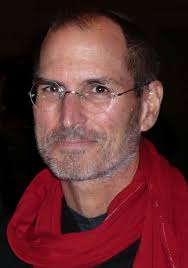 Often, there is some grain of truth in old sayings and myths. That is why they persist over time and generations. As I considered my own situation, I realized that one of the first questions I needed to answer was whether I could truly change old habits and patterns of thinking, if wanting to have a different life and future is really sufficient to make the effort successful. Perhaps the desire alone is not enough and there are factors that preclude some people from ever being satisfied with their achievements or happy.
Often, there is some grain of truth in old sayings and myths. That is why they persist over time and generations. As I considered my own situation, I realized that one of the first questions I needed to answer was whether I could truly change old habits and patterns of thinking, if wanting to have a different life and future is really sufficient to make the effort successful. Perhaps the desire alone is not enough and there are factors that preclude some people from ever being satisfied with their achievements or happy.
Skeptics have always questioned whether people, particularly adults, can change, leading to such idioms as
“A Zebra can’t change his stripes.”
“Old habits die hard.”
“You can’t teach an old dogs new tricks.”
“The Apple doesn’t fall far from the tree.”
“The sins of the Father are present in the son.”
When we look around us, we see the world and our environment constantly changing. Humans are the result of millions of years of evolution, generation after generation of subtle differences. Everything changes all of the time, sometimes too slow to recognize but occurring never-the-less. We are biologically predisposed to change, to adapt to our environments just as we influence our surroundings to accommodate our needs more efficiently. This propensity is apparent in the way our brains work, the influence of memory on our outlook, even the impact of emotions on our behavior.
This conflict between constant change and the paradoxical tendency of people to resist change led me to research how the human brain works, the influence of genetics upon our decisions, and why some people are able to make massive changes in their lives and others try, but fail.
Is Success Predestined? Failure Inevitable?
Each of us is both a victim and a beneficiary of our ancestors and our environment. Based upon our genetic tendencies, reinforced by the environments in which we mature and live, each of us develops stereotypes and habits to respond to events and conditions. Our personality reflects our characteristic pattern of thinking, feeling, and behaving as seen by others. To understand better who we are as well as develop techniques to change, it is important to understand how our brains works, what if any limitations we might inherit from our parents, and how memory affects our decisions as well as the connection between our personality and our mind. As British psychiatrist Dr. Susan Greenfield says, “personality” is how others see you while “Mind” or “Self” is what it feels like to be you. In other words, your “mind” is the emotions you feel at a particular time and location. Even though outside events trigger negative emotions, how we respond to them – their impact and duration – is within our control.
Failure is a matter of perspective and can either be a motivator or an obstacle to overcome. Failure is not a predictor of the future, nor a indication of a person’s value. Michael Jordan, perhaps the greatest basketball player of all time, said, “I have missed more than 9,000 shots in my career. I have lost almost 300 games. On 26 occasions I have been entrusted to take the game winning shot, and I have missed. I have failed over and over and over again in my life. And that is why I succeed.”
Similarly, there is no absolute definition of success or the elements that make one person happy versus another. Most of us are guilty of letting others influence whether we feel successful or not, generally by how much money we make or the assets we have. But tangible measures can be false indicators. How many houses can a person live in at a time? Is there really a difference between a $500 suit and a $5000 suit? With highway speed limits at 70 mph, does it make a difference whether you drive a Chevrolet or a Maserati? Of course, it does. Not, however, because of the tangible difference in benefits, but because “more, bigger, faster, more expensive” brings more status from those around us.
[one_third] [/one_third][one_third]Who is happier – a Steve Jobs who made millions by designing products that makes life more entertaining, exciting, and easier for millions or Mother Theresa who lived a simple life while focusing the world’s attention on the poor, the homeless, the persecuted? I suspect that both were happy and both probably considered their lives a success, but neither would have changed places with the other expecting to find more happiness as a result.[/one_third] [one_third_last]
[/one_third][one_third]Who is happier – a Steve Jobs who made millions by designing products that makes life more entertaining, exciting, and easier for millions or Mother Theresa who lived a simple life while focusing the world’s attention on the poor, the homeless, the persecuted? I suspect that both were happy and both probably considered their lives a success, but neither would have changed places with the other expecting to find more happiness as a result.[/one_third] [one_third_last] [/one_third_last]
[/one_third_last]

